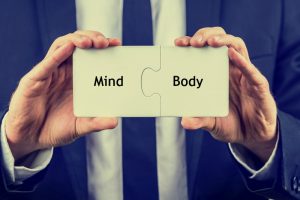
Whatever the mind thinks, the body does; therefore, there will be no assurance of optimal well-being without the harmonious accord between the two.
Understanding the mind-body network
Inevitably, the mind and body are perpetually associated. When the mind has an idea, it will arouse an avalanche of reactions on a cellular level through a person’s nervous system which then influences every single part of the body.
Interconnection of the mind and body is guided by the principle that all things are intertwined with each other, that even the environment plays a hefty part in humanity. Our thoughts dictate our actions. And our actions will either have a negative or a positive effect on the environment and to our society.
Complexities of balance
Jennifer Bradley, Psy.D., HSPP, Clinical Psychologist once stated, “I believe that human beings have an inherent longing and need for wholeness and balance, which is our natural state of being.” Reinforcing people’s views is proportional to wellness or illness. But there is a thin line between the interactions that occur within the body. When the body gets sick, it doesn’t necessarily mean that the mind is to blame. Sometimes, there are reactions happening physically that requires explanation. Underlying inherent factors like genetic tendencies may greatly cause imbalance leading to ailments.
Aside from what we’ve already mentioned, in order to further establish the stance about the mind and body connection, here are a couple of basic facts:
1. Everyone is bound by it

Eliza Chamblin, LCSW said, “Just like our feelings give us information about our needs, so do our bodies through physiological feedback.” There is no escaping the connection. You were born with it, you will die with it. Whether people are aware or not, the mind and the body interact every single day and night. A healthy body always listens to a healthy mind.And thinking that the two are working independently is a misconception. Bodily reactions like craving for a particular kind of food after seeing it on TV or having a nervous breakdown that caused you to vomit – these are some prominent though subtle proofs that the affectation was never absent.
2. The connection is vice versa
Paying close attention, the body also sends signals to the brain and the brain will acknowledge. Most of thestudies focus on how the mind becomes the mainframe and shoots out different signals to the body so that it can react in a certain way. Research has shown that the body-mind connection is revealed through gestures, facial expressions, postures, and body mechanics – these can have amajor influence on people’s mindsets. How a person behavesand feels can affect the mental state.
3. Thinking can take us further
You are who you think and say you are. This thought could be applied in any aspect of life. If you have a pessimistic outlook on your life, the body will recognize this and will definitely act accordingly. Negativity drives people to experience physical manifestations of headaches due to stress, aching shoulders, digestive problems, weight loss or gain, increased or decreased blood pressure, and even insomnia.
On the positive side, the body will develop coping mechanisms, boosting the immune system for whatever outside stressor it may encounter. One example is thinking that you can finish 50 push-ups or 100 sit-ups during your workout. It’s mind over matter.
4. Sleep is a natural healer
For the mind and the body to work hand-in-hand and in sync, they need rest and relaxation. And the best, cheapest way to gain proper rejuvenation is through sleep. In order to maintain normal amounts of serotonin in the body and be regulated appropriately, humans require at least six to eight hours of sleep. Anything below that would cause potential health issues.
5. Meditation repairs

Relaxation methods, like meditation, can positively affect the connection of the mind to the body. Not only that, meditation can also have a soothing impact on the heart. According to studies, meditation can help in easing anxiety and stress-related disorders, depression, and psychological disturbances.
“The most helpful definition of being positive is having hope and confidence in one’s ability to handle what’s tough, along with remembering that nothing is all negative all the time,” explains Jo Eckler, PsyD. Whatever we say, eat, and drink becomes of us; therefore it is essential that we grow into mindful individuals, responsible forwhat we think and do because it affects the outcome of our actions.
